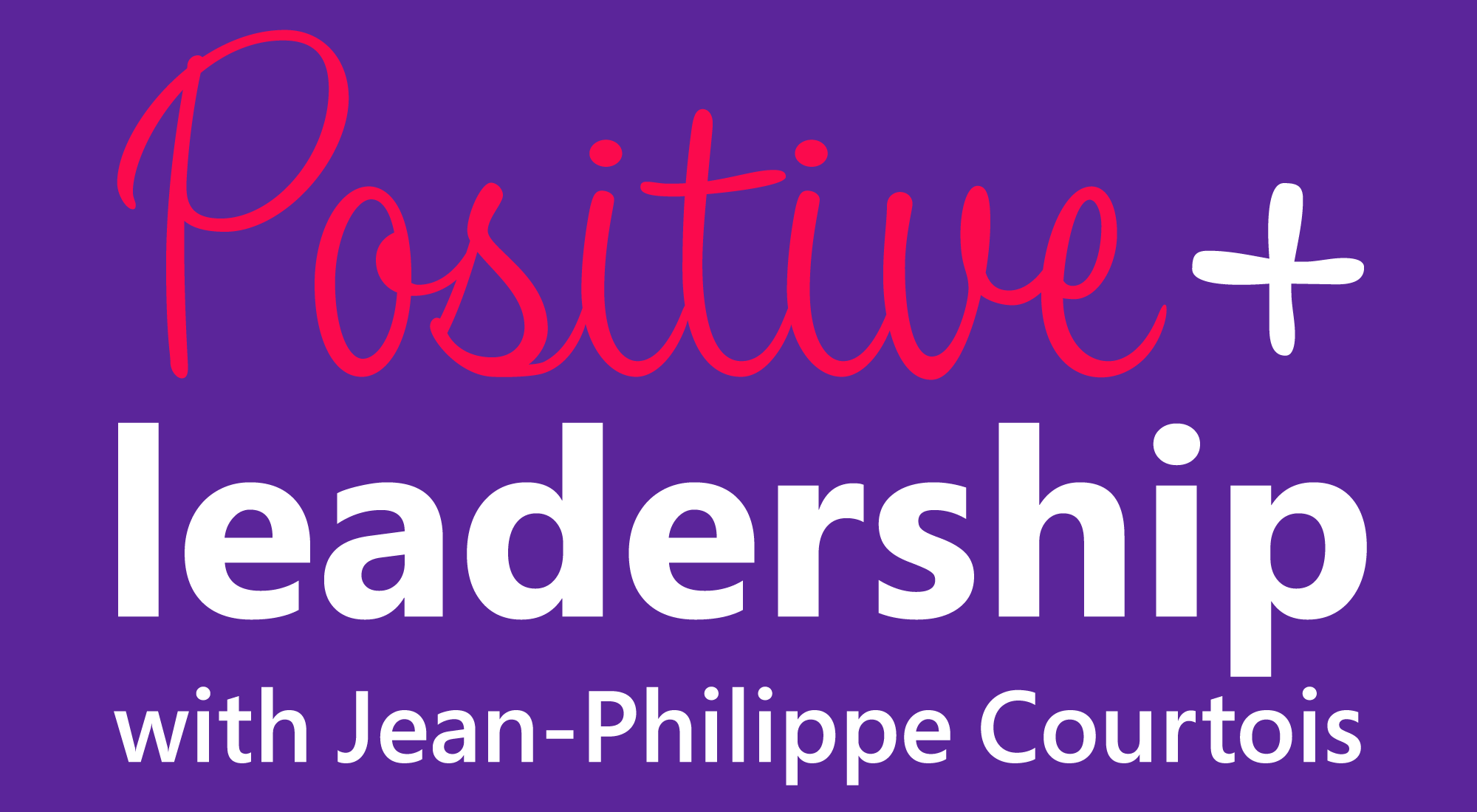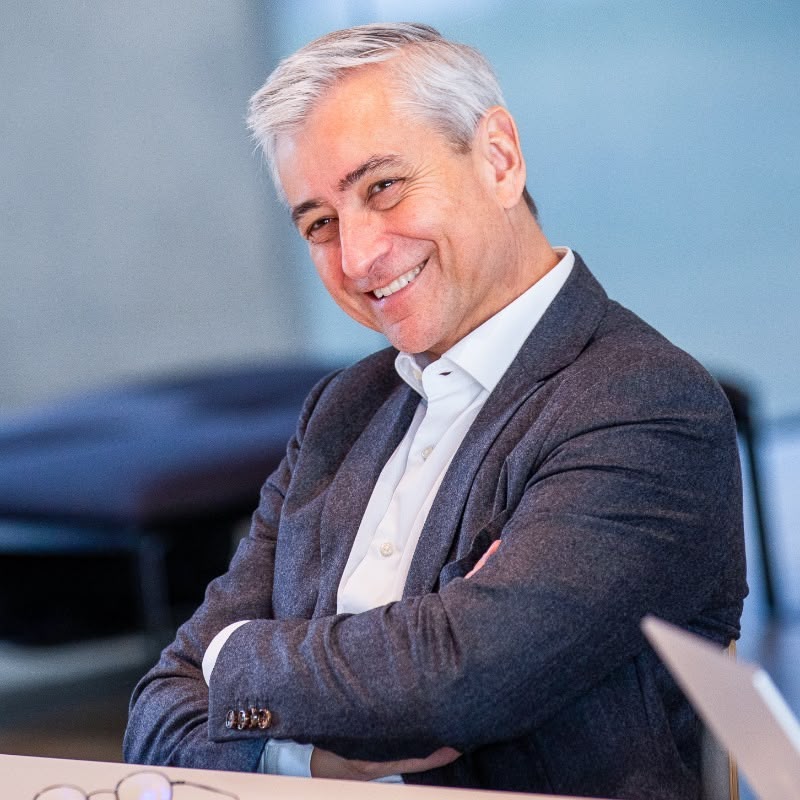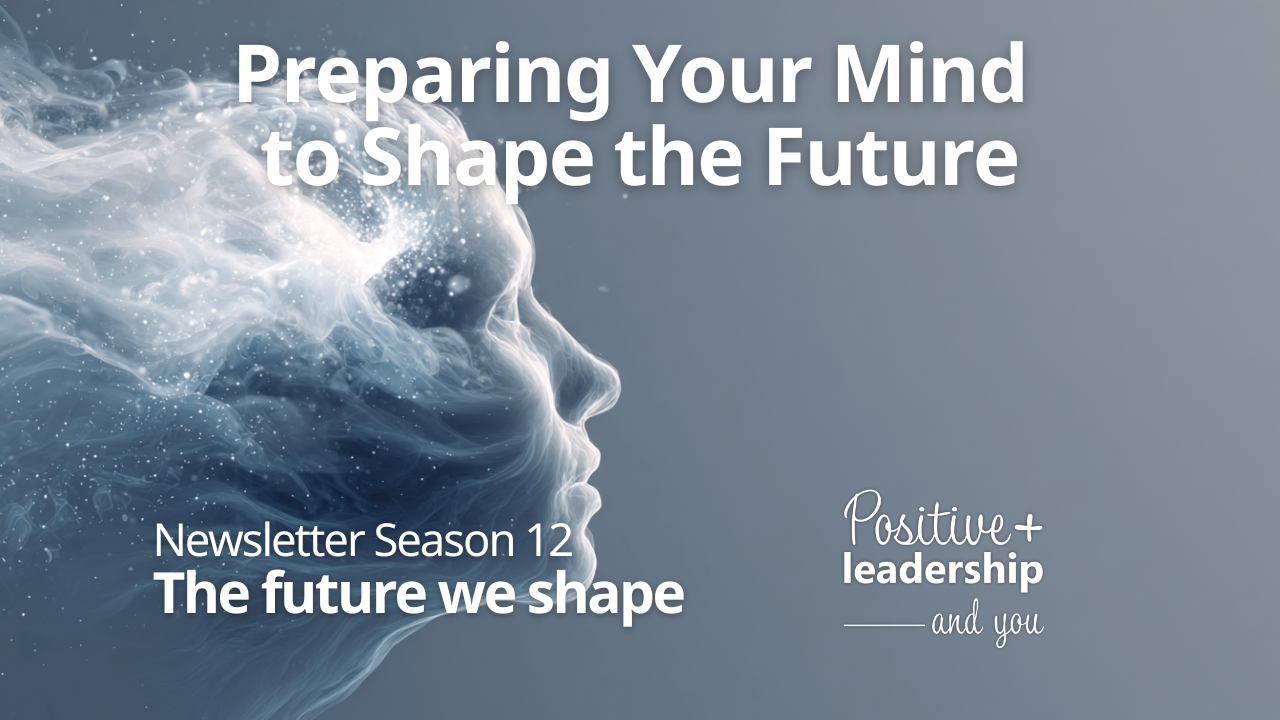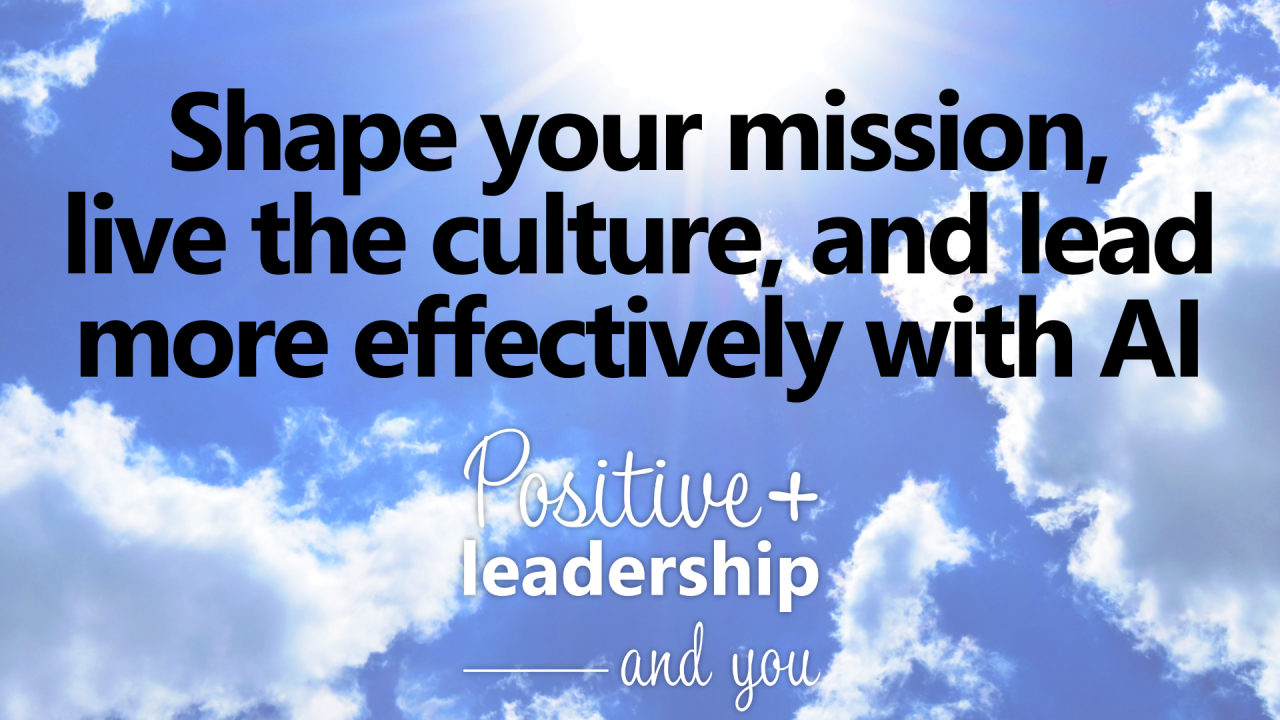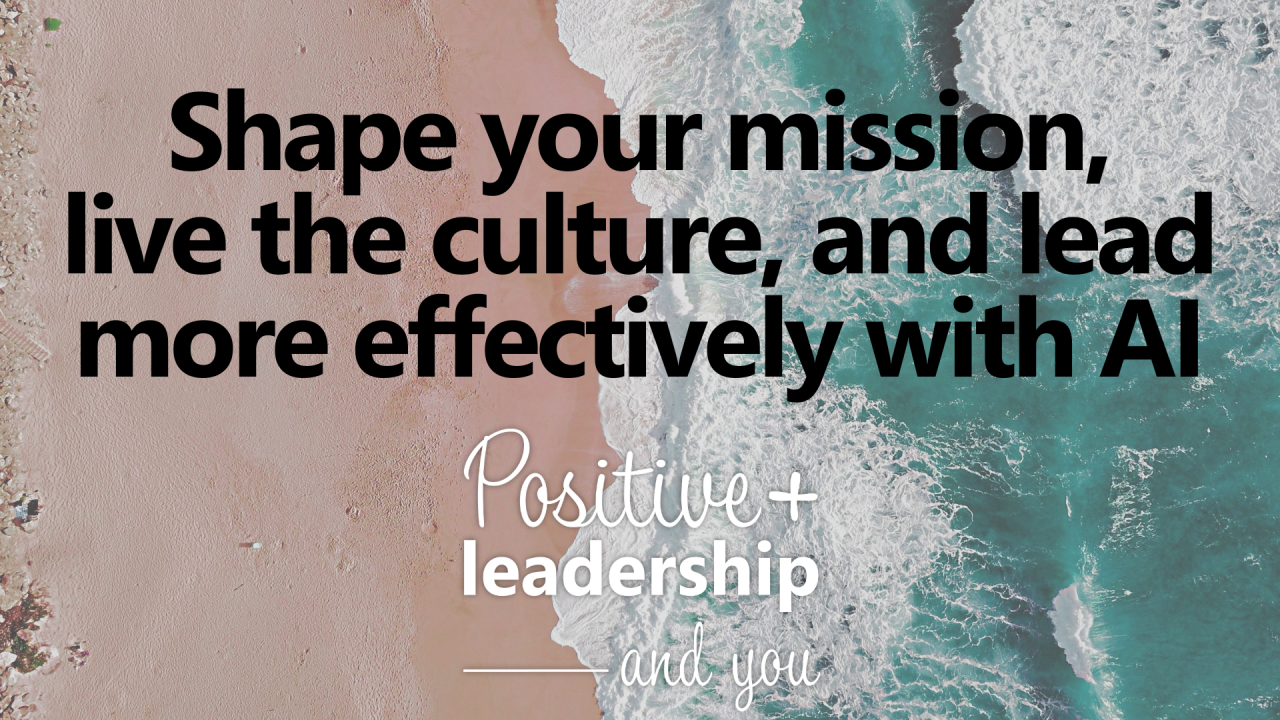07 Aug 25
Me and the World – Positive Leadership and AI
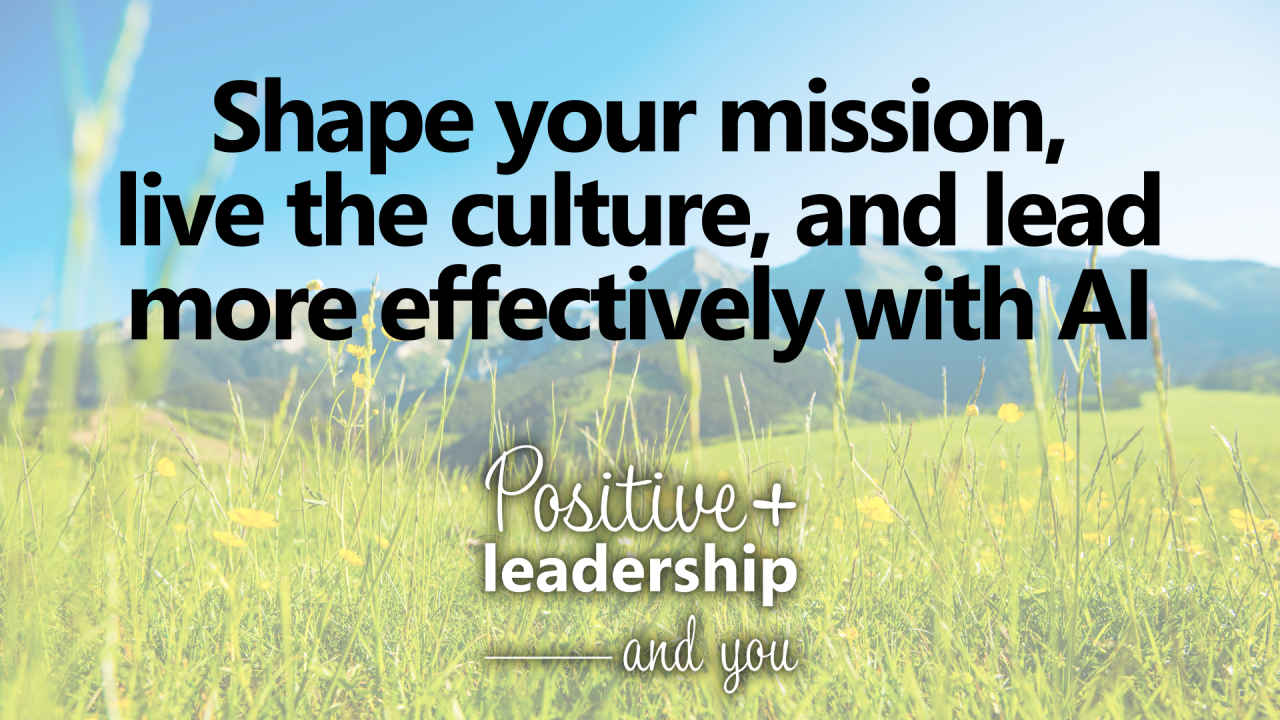
Welcome to the August edition of Positive Leadership & You. This month, we explore the outermost layer of leadership: our relationship with the world, through the lens of one of the most transformational forces of our time—Artificial Intelligence.
AI is already reshaping how we work, learn, and connect. But how we choose to lead with it will define whether it accelerates inclusion, creativity, and well-being—or deepens existing divides. That’s why this edition is dedicated to leading with intention in the age of AI.
Why Positive Leadership Matters in the Age of AI
As leaders, we face a defining question: Will we let AI shape the future for us—or will we shape AI to reflect the future we want?
Positive leadership means making decisions that serve the common good—not just technological progress. It means placing humanity at the center of innovation, and making ethics, equity, and empathy core design principles.
This mindset showed up across several podcast conversations—offering a powerful roadmap for leaders navigating the digital age.
Learning from the Voices of Positive Tech Leadership
🔹 Martin seligman – "Ask Martin" and AI as a Force for Psychological Good
In a remarkable convergence of psychology and technology, Martin Seligman—pioneer of Positive Psychology—shared how his team developed “Ask Martin,” an AI chatbot designed to offer guidance based on his decades of research on optimism, resilience, and meaning.
The idea wasn’t to create a digital guru, but to scale human wisdom. Drawing from thousands of pages of lectures, articles, and books, the chatbot offers answers inspired by Seligman’s work, making his insights accessible to anyone, anytime.
In the episode, Seligman discussed the potential of AI to democratize psychological support, especially in a world where many lack access to therapy or coaching. By embedding positive psychology into AI systems, he believes we can help individuals build stronger mindsets—at scale.
🎧 Listen to the episode with Martin Seligman:
Paving the way to positivity (with Dr. Martin Seligman)🔹 Kevin Scott – Empowering Leadership with AI
In his conversation on the podcast, Kevin Scott cott— Microsoft ’s Chief Technology Officer—shared a deeply human vision for how AI can serve leadership. Rather than approaching AI as just another tool for speed and automation, he invites leaders to see it as a productivity amplifier that unlocks time, energy, and creativity.
Scott emphasizes that AI’s most promising applications lie not in replacing people, but in supporting them to do more meaningful work. By removing tedious tasks, AI allows individuals and teams to focus on problem-solving, empathy, and long-term thinking—qualities that are central to positive leadership. He also warns against an “accidental future” where AI is developed without intention, encouraging leaders to proactively shape AI’s role to align with human flourishing.
He reflected on how technical innovation often outpaces societal adaptation, and urged leaders to step up—not just to adopt AI, but to guide its ethical and inclusive use. His vision is one where AI amplifies what makes us most human, especially our ability to care, connect, and collaborate across differences.
🎧 Listen to the episode with Kevin Scott:
Empowering people with AI (with Kevin Scott)🔹 Sal Khan – Personalizing Education Through AI
In our conversation with Sal Khan , founder of Khan Academy, we explored how his vision for education goes far beyond digital tools — it’s about unlocking human potential through personalized, mastery-based learning. Sal shared the story of how a simple effort to help his cousin Nadia with math evolved into Khan Academy, a platform now serving millions of learners worldwide. His belief is simple but profound: every child, regardless of background, should have access to a free, world-class education.
Sal discussed how the traditional industrial-era education system, with its standardized pace and batch learning, leaves too many students behind. His solution — mastery learning — allows each student to progress at their own rhythm, filling knowledge gaps instead of being penalized by rigid grading. Through Khanmigo, Khan Academy’s AI-powered tutor, Sal envisions a future where every learner has access to a kind, patient, and infinitely scalable mentor, capable of guiding them through concepts with a Socratic, conversational approach.
He also emphasized that technology alone is not enough: human connection and mentorship remain central. For Sal, AI’s role is to amplify teachers’ impact, not replace them — offering real-time feedback, freeing educators to focus on creativity, empathy, and motivation. His work is a powerful reminder that technology’s greatest promise lies in democratizing opportunity and fostering a lifelong love of learning.
"The goal of education is to allow more people to have a happy and meaningful life. That's all I would want for anyone on the planet. And it's not even a wealth thing. You know, as long as you feel like, okay, I do this thing and I'm trying to do it with excellence, I have a growth mindset about it and I have a shot at contributing to the world and supporting myself and having a family, then that's a good life."
🎧 Listen to the episode with Sal Khan:
Revolutionizing Education (with Sal Khan)🔹 Jeff Raikes – AI, Equity, and Collective Responsibility
In this insightful episode of the Positive Leadership Podcast, Jeff Raikes, former CEO of the Bill & Melinda Gates Foundation and co-founder of the Raikes Foundation , offers a compelling perspective on the role of AI in society. He moves beyond the technical aspects of AI to focus on the profound responsibility we all share in ensuring that these technologies foster positive social change.
Raikes stresses that AI must be approached not as just another tool, but as a collective responsibility. He emphasizes the importance of governance, inclusion, and open dialogue to ensure that AI serves the broader public good and doesn’t inadvertently widen inequalities. “We must ask ourselves: Who is this technology serving—and who is it leaving out?” he says, challenging us to think critically about how AI can be harnessed for social equity.
Throughout the episode, Raikes reflects on his journey from leading tech at Microsoft to shaping the philanthropic landscape at the Gates Foundation and the Raikes Foundation. He underscores the need for a collaborative, values-driven approach to technology and social progress, noting that these conversations must be inclusive of all voices to truly have an impact.
Recommended by LinkedIn
🎧 This episode is a must-listen for anyone interested in the intersection of AI, equity, and leadership.
Special 100th episode! A Journey of Leadership and Giving Back (with Jeff Raikes)🔹 Rana el Kaliouby, Ph.D. – Human-Centered AI and the Power of Empathy
In her episode on the Positive Leadership Podcast, Rana el Kaliouby, a pioneer in the field of artificial emotional intelligence and co-founder of Affectiva , shares her powerful vision for AI that prioritizes people. Rana emphasizes that empathy is at the core of AI development:
"Empathy is non-negotiable. It’s having empathy for others, putting yourself in other people’s shoes and seeing where others are coming from, as opposed to otherizing them."
She highlights the need for AI to not just understand data, but to understand humans, making empathy a crucial element in building trust with technology.
Her work focuses on integrating emotional intelligence into AI systems, ensuring that technology serves humanity and not the other way around. As she continues her journey with Blue Tulip Ventures , a venture fund dedicated to human-centric AI, Rana advocates for a more inclusive and ethical AI landscape, where diverse perspectives are brought into the fold. By aligning profit with purpose, Rana is committed to investing in solutions that not only drive technological innovation but also have a positive, lasting impact on society.
🎧 Listen to this episode:
Human centric AI (with Rana el Kaliouby)From Code to Culture: How Leaders Can Drive Ethical AI
AI leadership is not about technical fluency alone. It’s about creating cultures where:
- Ethical boundaries are clear—and respected.
- Diversity is not a checkbox—but a design principle.
- Technology amplifies purpose—not just profit.
As leaders, we must make choices today that our future selves—and future generations—can be proud of.
What We're Exploring at Live for Good
At Live for Good , we believe AI can be a true “co‑CEO,” partnering with our coachs and entrepreneurs to bring expertise, insight, and impact. In France, 40% of young entrepreneurs from underprivileged backgrounds lack tech skills—slowing innovation for the common good. In our community, 1 in 2 feel lost with AI/no‑code, and 29% are dabbling without a plan. With our AI bootcamps, 67% adopt AI in daily work and see how it accelerates their mission.
What works: clear, practical learning paths plus peer collaboration and expert guidance.
The gains are real: 4h20/week saved on administrative tasks, 77% higher productivity, 90% more time available for growth. Our next frontier: ease mental load and prevent burnout
We're on our way to embed AI and no‑code into all our programs, making AI a trusted, everyday ally for positive impact entrepreneurs.
A Reflection for the Month Ahead
This month, I invite you to reflect:
🔹 How am I preparing myself—and my team—for the ethical use of AI?
🔹 Where can AI help me lead with more presence, care, or creativity?
🔹 Am I centering humans in every AI-related decision I make?
Because in the end, AI will reflect the values of those who shape it.
Let’s make sure they are values of empathy, equity, and excellence.
Onward,
Jean-Philippe Courtois
